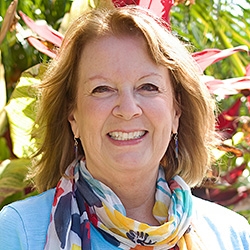
NVC Resources on Compassion
-

Creating and Sustaining Strong Teams
(4 Session Course)
In this course recording, you'll encounter new abilities and learn how to collaborate effectively from WITHIN a team. You'll be invited to build on interpersonal relationships, and branch out into the exciting challenges present when people work together toward a shared purpose.
-

Needs
A Foundation of Inner Freedom, Empowerment and Peace
The human needs that we all share are the foundation of the Nonviolent Communication (NVC) process because it is in connecting to needs that we find inner freedom, empowerment and compassion.
-
In order to bring in more nonviolence into the world, we need to take our own needs seriously and recognize that no amount of seeing someone’s innocence would mean putting up with more of their harmful behavior. We need to disentangle compassion towards another from the willingness to tolerate more harmful actions. At times this means finding enough self-love, support, or clarity, to take decisive action. Read on for more.
-
In the "obnoxious stage" we care for our needs in a way that doesn't respect others' needs. In the "emotional liberation" stage we fully care for others' needs as much as our own—while being free of fear, guilt, shame, or obligation. Often NVC training teaches us how to achieve the latter stage without the former. For greater compassion we can be more rigorous in how we talk about “responsibility", impacts and interdependence.
-
One NVC principle is "stimulus vs cause" - one may be the stimulus but never the cause of another's feelings. When we're upset this principle can help us express pain without blame. However, when others are upset it's easy to slip into blaming them using this principle. Instead, we can hear their pain with care and heartfelt mourning - without guilt nor defensiveness, and whether or not we agree. All this is important if we're sincerely applying compassion. Read on for more.
-
Yvette Erasmus shares practices to help us develop a regulated nervous system. We all get hijacked and triggered at some point. When that happens we can travel a blame and shame road or we can greet ourselves with graciousness and self compassion.
-
When your dedication to something is fueled by a profound intention to benefit all life, you may call it your spiritual practice. This means cultivating compassion, wisdom, and skills to notice what truly serves life. Its a discovery and experiment in what does and doesn't serve life, and what you can do now - its not about what you believe or not. Continuously inquire: "What most deeply serves life and how can I do that right now?"
-

Responding to Breakdown of Trust in Police
Capitalism, Racism, and Creative Compassion
If we're to have a better future, our biggest task will be to reexamine what the police are, their place in the system, and more. Police violence exists by systemic design. The myths of where the problems and symptoms lie with the police, capitalism, laws, government, citizens, class and racism --plus the relationship between all these-- is what keeps oppression ongoing on a mass scale. For change to happen, we'll need to find systemic leverage points, and use privilege to benefit those without it. Read on for more.
-

Embracing the Body
Learning Compassion as a “Felt-Sense”
Our "felt-sense" can provide crucial information about our experience and our lives. It can also help us integrate and retain information. This can also bring greater access to internal resources, choice, open heartedness, collaboration and creative solutions. From there, profound insight and transformation can follow. Here's how we can harness that...
-
Even in the face of societal upheavals we can look for what's in our power to change. For example, we can participate in systemic change, and heal whatever we need to heal that which keeps us from living our values more readily. We can take the time to be present to those in pain, and to show up fully in our lives even when we feel stress. We can take strides to make a difference towards creating the world we want to live in.






